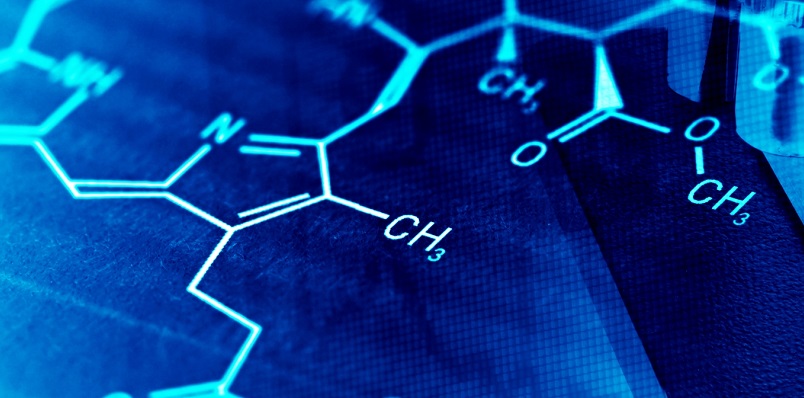Biochemistry is concerned with the chemistry of the materials fundamental to life and contributes toward the understanding of the structure and functioning of all organisms. Because of the rapid advances in the areas of biotechnology, molecular biology and genetic engineering, biochemistry is an exciting area for study and research.
Background Information
The undergraduate program in biochemistry at North Dakota State University is planned for students who are seeking careers in the life sciences, agriculture, medicine or health related fields. The program is also suited for students who are contemplating advanced graduate degrees in biochemistry, botany, zoology and microbiology, or professional degrees in dentistry and medicine.
The biochemistry program is offered by the Department of Chemistry and Biochemistry.
The Program
Students with an interest in biochemistry earn the Bachelor of Science degree in biochemistry and molecular biology. This provides flexibility in the selection of courses for those students who plan to seek employment in areas related to biochemistry, enter graduate or medical school, or teach in high schools or higher education institutions. The program provides training in biochemistry, botany, microbiology, zoology or in applied areas according to the student's interest. In addition to the courses in chemistry, physics and mathematics, an additional 16 credits in biological sciences, 18 credits of electives in the humanities and social sciences, nine credits in English, three credits in speech and two credits in wellness are required. The pre-medical student is encouraged to take a year of upper-level zoology.
All undergraduates in biochemistry and molecular biology receive assistance in planning and scheduling classes from faculty advisors. In addition to course work and laboratory courses, students also have the opportunity to learn by conducting research in various areas of biochemistry under faculty guidance.
Faculty and Facilities
The Department of Chemistry and Biochemistry is well staffed with 17 faculty members. All of the faculty have doctorate degrees from well-known universities. Most of them have considerable experience in postdoctoral or industrial research.
The research and teaching facilities for the department are housed in four buildings— A. Glenn Hill Center, Ladd Hall, Dunbar Laboratories, and the Quentin Burdick Building.
Advanced instruments and facilities are readily available. These include ultracentrifuges; gene synthesizer; nuclear magnetic, infrared, ultraviolet and mass spectrometers; gas and liquid chromatographs; computers; recombinant DNA and cell and tissue culture laboratories; and an advanced electron microscope facility.
Career Opportunities
Employment opportunities for biochemists are found at higher education institutions within the chemistry, biochemistry and biological sciences departments; in medical schools, hospitals, research institutes and government research laboratories; and in other health, energy, environment and agricultural research programs. Biochemists are employed at all levels in industries concerned with food processing, manufacturing, genetic engineering and marketing of drugs, cosmetics and pesticides, as well as in the petroleum and allied industrial complexes.
Earnings of persons trained in biochemistry vary, and the salary level depends largely upon the amount of formal training a person has received. Entry-level salaries for biochemists average $44,100 per year, based on 2016 data from www.payscale.com. For biochemists who have an advanced degree, salaries and opportunities are much greater.
High School Preparation
A strong high school background in English, mathematics (through trigonometry, if possible), biology, chemistry and physics is recommended.
Sample Program Guide
IMPORTANT DISCLAIMER: This guide is not an official curriculum. This guide is a sample four-year degree plan of how students might plan this major with other degree requirements to complete their education in four years.Student plans will vary from this sample due to a variety of factors, such as, but not limited to, start year, education goals, transfer credit, and course availability. To ensure proper degree completion, enrolled students should utilize Degree Map and Schedule Planner in Campus Connection and consult regularly with academic advisors to ensure graduation requirements are being met.

